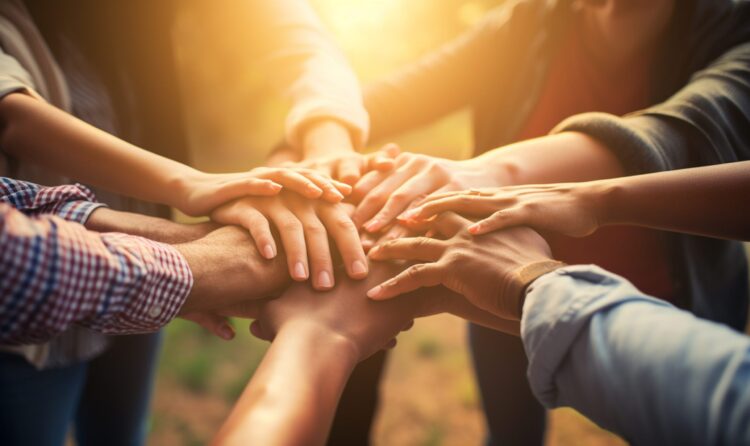The power of sobriety is reinforced by many tools, but one that continues to prove most effective is to have a network of people who not only support your efforts but also encourage you to succeed. This alliance creates a nurturing circle of trust, respect, and positivity, and everyone within it thrives.
The Critical Impact of Loneliness
If we learned a major lesson from the pandemic lockdown, it’s that most people don’t like to be isolated. Sure, learning to cultivate quality alone time is important for our mental health, but to be removed from a reinforcing social structure compromises it.
Even before that event, researchers frequently examined the impact of pervasive loneliness and discovered it to be as damaging for emotional, mental, and physical well-being as other chronic health conditions. In January 2020, an NPR article revealed the results of a study of 10,000 adults across multiple demographics, not just older adults. One of the key takeaways is that “loneliness appeared to be more common among men. The survey found 63 percent of men to be lonely, compared with 58 percent of women.”
The study also noted some of the key factors contributing to loneliness, which we provide verbatim:
- A lack of social support and infrequent meaningful social interactions.
- Negative feelings about one’s personal relationships.
- Poor physical and mental health.
- A lack of “balance” in one’s daily activities–doing too much or too little of any given thing (e.g., sleep, work).
Additionally, although social media was once considered a global connection point, 73 percent of respondents in the study who used it heavily indicated they were lonely, compared to 52 percent of light users. So even with technological advances, U.S. Surgeon General Vivek Murthy stated at a conference in September 2022 that loneliness continues to be a public health epidemic. “Loneliness poses real threats to both mental and physical health, among them higher risks of depression, anxiety, cardiovascular illness, dementia, and sleep disturbances.”
Why We Need Each Other in Sobriety
Even people with the most reserved personalities come to life when they feel seen, heard, and valued by someone else. This is one reason why addiction science specialists believe accessible peer support groups during addiction treatment, in aftercare, and in recovery “show much promise in potentially reducing substance use, improving engagement, reducing HIV/HCV risk behaviors, and improving substance-related outcomes.”
Collective data also suggest that individuals in support groups develop a better sense of self-efficacy (a person’s belief in themselves to accomplish something), which adds to their motivation to reduce risk behaviors associated with drug or alcohol abuse. “Associated positive changes have also been demonstrated such as improvements in negative affect, social support perceptions, reductions in habitual craving, and feelings of guilt or shame,” additional conclusions indicate.
The Greater Good Science Center notes that “scientists believe we are essentially wired to connect with other people because natural selection favored humans with a stronger propensity to care for their offspring and organize into groups.” The center adds that a supportive social network also improves resiliency, as “the availability of social support in all its forms—instrumental support, emotional support, support with how you think about things—they all matter and help us in facing challenges.”
Even if you’re more the strong, silent type, being with other people who “see” you with an understanding of your struggles and joys gives you a greater sense of belonging—which helps anchor your sobriety choices.
Creating Better Connections
Many people who enter recovery do so with the solid backing of dedicated family and friends. But even the most committed individuals in your life might not truly understand the scope of recovery and what’s necessary to maintain it. Addiction can be hard to talk about, so sometimes it’s easier to work toward developing more relationships with people who know where you’ve been on this journey, and know where you want to go in the future.
Researchers recommend that to truly benefit from meaningful connections, invest in healthier relationship habits and widen your circle. Here are some ideas:
- Envision what types of positive relationships you’d like to have.
- Find people who share your interests and goals.
- Show genuine interest and enthusiasm in another person’s good news.
- Develop better communication skills, such as active listening (paying attention to what someone is truly saying and responding without judgment) and reflective listening (ensuring the person you understand what they’re talking about by “reflecting” some of their ideas and concerns in your responses).
- Choose to invest time and share interests with individuals you really care about.
- Respect individual boundaries and be aware of different obligations people might have.
- Be willing to share your vulnerabilities in the right context, such as at a 12-Step meeting.
- Become more comfortable with extending invitations and accepting them from others.
- Find a balance with aspects of connection—you don’t want to overwhelm someone with text messages, for example, but sharing a laugh or asking how they are on a particular day helps keep you in touch.
- Express gratitude for what a person adds to your life.
You don’t have to do all these things with everyone you meet. Even a couple of people with whom you most identify at your next 12-step or group counseling session could become exactly the support foundation that’s mutually beneficial.
Expand Your Sober Network at Great Oaks
Our fully accredited addiction rehabilitation center in Texas reinforces the power of connection with alumni groups and Recovery Renewal weekends. Ask a member of our admissions team about our extensive aftercare program.



